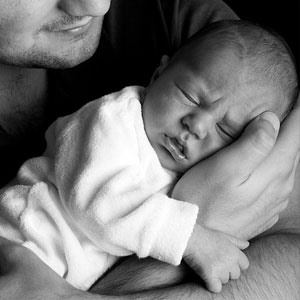
A toddler younger than three years who has not been breastfed, has little resistance against serious infections and is particularly vulnerable to highly infectious diseases like flu.
But all children younger than 10 - 12 years are especially vulnerable to the flu-virus.
Flu has a sudden onset in children. Within one hour a toddler can run a high fever and be drastically ill, but he'll probably recover within two to three days.
If a child develops a temperature higher than 38,5 degrees Celsius by rectum, or higher than 37,5 degrees Celsius by mouth, it is advisable to consult a doctor.
A child with a high temperature might be at risk for a fever fit (febrile convulsion).
The fever should be treated by means of paracetamol syrup and spongeing the child with tepid water. Speak to your doctor. Do not treat your feverish child with aspirin. A feverish child treated with aspirin can develop Reye's Syndrome which affects the brain and liver.
Be careful of medication containing antihistamines in children.
There is a risk of oversedation of the baby or a paradoxical reaction where the baby becomes hyperactive, irritable, won't sleep and has difficulty feeding. Antihistamines should not be used in children under the age of two.
A child can develop complications if not treated and observed carefully.
Keep your child at home if a lot of children in his playgroup are ill, or if he is ill.
Fever is not the only indication when you should call a doctor.
Look for other signs of illness when your child has a fever:
- Loss of appetite
- Vomiting or abdominal pain
- Flu symptoms in children are often misdiagnosed - or even missed
- Irritability
- Unusual sleepiness
- Severe headache
- Persistant crying
- Inability to swallow
- Sore throat
- Difficulty in breathing
- Ear pain
- Your child is younger than 2 months and has a fever higher than 38 degrees Celsius (by rectum). Call even if your child seems fine otherwise;
- Your child is between 2 and 3 months old, has a temperature of more than 38,4 degrees Celsius (by rectum), and shows signs of illness;
- Your child (any age) has a temperature of 39 degrees Celsius (by rectum) or more;
- Your child has a fever even after taking paracetamol (such as Tylenol) for three days. Be aware that this drug can harm your child's liver. Consult a doctor before you start with this medication.
- Live vaccine drops or a vaccine spray (in an experimental phase) work very well in children and have few side effects.
Healthy teenagers are more resistant to flu viruses than young children.
Read more:




 Publications
Publications
 Partners
Partners











